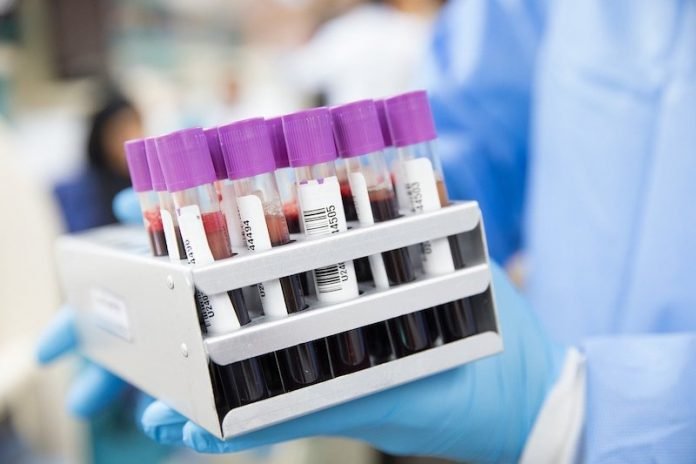
The current 60% five-year survival rate of people with oral squamous cell carcinoma (OSCC)—a type of cancer of the mouth and throat—could be greatly improved if treatments were initiated as early as possible.
Scientists from Stanford University found a simple blood test could help detect oral cancer early.
The research is published in Natural Sciences and was conducted by Richard N, Zare et al.
In the study, researchers used a technology called conductive polymer spray ionization mass spectrometry to screen the blood for metabolic signs of OSCC.
The method could accurately distinguish between individuals with and without OSCC.
Also, two altered lipid markers that were discovered in the blood could be traced back to the cancer site for guiding surgical margin assessments.
The method—which requires only a single drop of blood—could also distinguish between patients with early versus later stages of OSCC.
The team says this study represents the fruits of research involving the United States and China, in which all the participants believed that the results would be a win for both countries and for the world as a whole.
This is an idea that seems alas to be disappearing in these times of mutual suspicion and distrust of international collaborations.
If you care about cancer, please read studies that vitamin D could cut cancer death risk, and exercise could stop cancer in its tracks.
For more information about cancer, please see recent studies about a new method to treat cancer effectively, and results showing this daily vitamin is critical to cancer prevention.
Copyright © 2022 Knowridge Science Report. All rights reserved.



